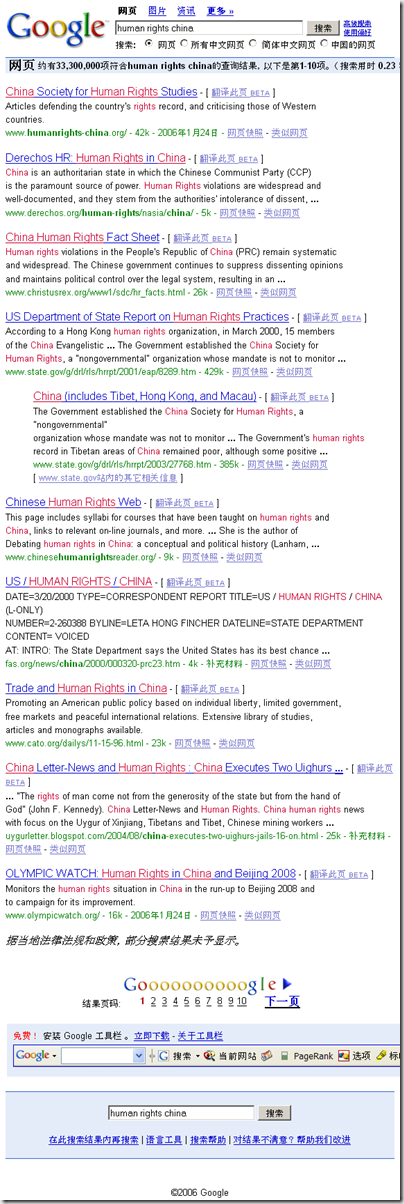“ A gain as per my trend of being late into things, I am here to offer, what I think would be a comparison comment over the dark horse Google Buzz and well adored one Twitter. Google Buzz has really amazed many of us and seems to be filling the gap, Google tried to fit on many times, but failed. A service that didn’t created a stir like Google wave did for many months, but as of now, it really seems that Google finally got something, which it was lacking since long. “
gain as per my trend of being late into things, I am here to offer, what I think would be a comparison comment over the dark horse Google Buzz and well adored one Twitter. Google Buzz has really amazed many of us and seems to be filling the gap, Google tried to fit on many times, but failed. A service that didn’t created a stir like Google wave did for many months, but as of now, it really seems that Google finally got something, which it was lacking since long. “
Google Buzz: Launched by Google on 9th February 2010, in many ways, is the boldest attempt from Google to get hold on Social Networking without compromising its ways of making things. Orkut and OpenSocial were already there and were effective due to their inherited simplicity, but still Google lacked that bigger media presence and fanatics, Facebook or Twitter has. We were encountering lots of Facebook and TweetThis button on blogs, but still from Google side, we had only few options like to add the feed to Google reader or the recent one a bookmark to share something on Orkut. Does that work?
Launched by Google on 9th February 2010, in many ways, is the boldest attempt from Google to get hold on Social Networking without compromising its ways of making things. Orkut and OpenSocial were already there and were effective due to their inherited simplicity, but still Google lacked that bigger media presence and fanatics, Facebook or Twitter has. We were encountering lots of Facebook and TweetThis button on blogs, but still from Google side, we had only few options like to add the feed to Google reader or the recent one a bookmark to share something on Orkut. Does that work?
Buzz is a stream of status updates, pictures, links, and videos from your friends. You can “like” these items and you can comment on them. And if you use Flickr, Picasa, Google Reader, or Twitter, you can also automatically have those items imported into your stream. And Buzz will recommend items you might like based on your friends’ activity. Much like Friendfeed (launched by Google earlier) na !!!! But its integration with Gmail has made it the biggest phenomenon happening around as it started with an already existing massive base of Gmail users (150 million or 15 Carore as per August 2009).
 Twitter: Since its creation in 2006 by Jack Dorsey, Twitter has gained notability and popularity worldwide. It is sometimes described as "SMS of the Internet" The use of Twitter’s application programming interface for sending and receiving text messages by other applications often eclipses direct use of Twitter. It has almost every biggest celebrity already on it and if we talk about numbers, then it has total 5.36 Carore users as of now (note that these are number for the ones with public profiles only)
Twitter: Since its creation in 2006 by Jack Dorsey, Twitter has gained notability and popularity worldwide. It is sometimes described as "SMS of the Internet" The use of Twitter’s application programming interface for sending and receiving text messages by other applications often eclipses direct use of Twitter. It has almost every biggest celebrity already on it and if we talk about numbers, then it has total 5.36 Carore users as of now (note that these are number for the ones with public profiles only)
Twitter is a free social networking and microblogging service that enables its users to send and read messages known as tweets. Tweets are text-based posts of up to 140 characters displayed on the author’s profile page and delivered to the author’s subscribers who are known as followers. Senders can restrict delivery to those in their circle of friends or, by default, allow open access. Ever since late 2009, users can follow lists of authors instead of following individual authors. All users can send and receive tweets via the Twitter website, Short Message Service (SMS) or external applications.
First of all, why social networking sites becoming so relevant?
Although I might be miserable while understanding the trend, as far I think the biggest reason behind success is, it unites people with similar lifestyles (or wanna be similar) together in the “university lifestyle”, someone can connect with a friend, view his/her pictures and there is a good chance that he/she will see their new friend the next day on campus or at the pub. Many times these sites are not actually about the persons themselves, but about the things happening. You could get to know insides about a lifestyle, you always dreamed of, without even knowing the person having the same. Its not just about fun and time killing, but about feeling alive and talking to people in real than going to office and coming back from office in a routine, where we don’t even know our neighbors
similar lifestyles (or wanna be similar) together in the “university lifestyle”, someone can connect with a friend, view his/her pictures and there is a good chance that he/she will see their new friend the next day on campus or at the pub. Many times these sites are not actually about the persons themselves, but about the things happening. You could get to know insides about a lifestyle, you always dreamed of, without even knowing the person having the same. Its not just about fun and time killing, but about feeling alive and talking to people in real than going to office and coming back from office in a routine, where we don’t even know our neighbors
In the similar way, it’s a medium where at least you could approach or get approached by people, you never seen or cant even think about meeting like someone layman like me wanna to give a message to SRK. Definitely, Social Sites have a reason to get popular.
How Twitter became such a big thing everyone is talking about?
 Earlier experts denied growth of Social Networking sites and later suspicious about Twitter, but it was all about simplicity. Facebook, MySpace, Orkut etc. create an almost living life online with an introduction, photos, conversations, friend circle and communities. But while in start, there is hassle of filling forms and thinking that what to tell the world about you, later on, in stressed life, it becomes a bigger and boring thing than you actually wanted.
Earlier experts denied growth of Social Networking sites and later suspicious about Twitter, but it was all about simplicity. Facebook, MySpace, Orkut etc. create an almost living life online with an introduction, photos, conversations, friend circle and communities. But while in start, there is hassle of filling forms and thinking that what to tell the world about you, later on, in stressed life, it becomes a bigger and boring thing than you actually wanted.
Think, if you are feeling something very ordinary, special or just weird and wanted to tell everyone about, what you do? Mailing are old fashioned for these kind of things and if you are regularly sending such messages then likely to be missed. So what are the other options? Before twitter, there were basically four ways to do the same:
-
Send SMS to all your contacts (Its costly and embarrassing, if no one cares)
-
Change your Orkut/ Facebook/ MySpace status message (was a better and still relevant option as you wished to address friends)
-
Write a blog post (if you are not popular then nobody would even know about that)
-
Change your status in chats (Gtalk, Yahoo, MSN etc)
Twitter become just a solution from combination for all these things. It was kind of Internet SMS considering the limitation of words to express. It was not FaceBook or Orkut kind of .. it was not blogging, but was both of these thing for people having short time specially like celebrities. Moreover, concept of following someone on twitter was way different than accepting friend requests. Yes! now you were not able to distinguish between friends that whom to show photos and whom to not, but still it was solving purpose for many.
As suited and joined by Celebrities actively, it was bound to attract others due to its simplicity and once twitter clients arrived allowing you to tweet from cell over GPRS, it became a BANG.
Why am I excited about Buzz?
Seriously speaking, I been a fan boy for Google Services, due to their integration into each other and top of that simplicity in way only they  could have defined. Some of their product might not have gone for that much success, which they are used to, but the concept behind each of their product was never the bad one or threatening to other existing models. If you launch something exactly similar to others and advertise it so big that its the better then you are threatening, but if you made something, which actually raises standards and in place of putting points on board, then what you do look like you are doing for mass, for betterment of technology and living. This is what I feel about the way Google does things.
could have defined. Some of their product might not have gone for that much success, which they are used to, but the concept behind each of their product was never the bad one or threatening to other existing models. If you launch something exactly similar to others and advertise it so big that its the better then you are threatening, but if you made something, which actually raises standards and in place of putting points on board, then what you do look like you are doing for mass, for betterment of technology and living. This is what I feel about the way Google does things.
Still I will be critical about analyzing Buzz. Buzz is still as for me, is the kind of thing Orkut has in form of Friend Updates or kind of thing Facebook has (already they did a little over or it and Farmville, Mafia Wars like games had completely spoiled the meaning of it).
As I come to read few deeper articles about it, I find clear and bigger differences.
|
Google Buzz
|
Twitter
|
My Comment
|
|
Its about conversations. Someone buzz about something and other might wanna comment on the same. It creates a conversation.
|
Its kind of self centric, where you write your opinion or give voices to others opinion. Not necessarily, you reply to someone specifically, but write your own words for public. Its not like one-to-one conversations, but might be like conversation in some group discussion or kind of board meeting.
|
Both are special at their places. Twitter still relevant as its user base already self centric in the way twitter defines it. Chain of conversations are best thing that could happen to any blog/ micro-blog/ social networking and Google Buzz is headed in the same way, original Social Networking was all about, but still I doubt that how it will look like on a massive scale.
|
|
From the first hour it arrived, it started growing than any other could have, due to already established massive base of kind of most favourite email service Gmail.
|
It was new in its concept and since its arrival in 2006, it grwon on its own due to its uniqueness easiness and yet effectiveness.
|
Numbers and growth rate might say something else, but still Twitter is a steady thing. Buzz looks promising and good thing till we keep it out of context with twitter, but when will come on same scale, then they are going to carry two different definitions.
|
|
Its still inside your Gmail inbox, no separate site or link (though Google Profile is a richer version of personal pages now). Although it has been integrated into Google Maps for mobile, but still mobile client needs to be developed. Moreover, I don’t know if its possible to buzz from SMS.
|
Its a separate service, separate account, separate password to remember, separate website to login into. Still it has massive reach due to mobile clients developed for it. More of it, it’s available by SMS (charges apply).
|
Google Buzz has potential and Google is responding well to complaints to shape it better, hope people around world will raise all the points in tme. Sure, soon we will see clients developed and some way around SMS as Google SMS already available in some of the countries. Still I don’t think Google will step in something costing to users other than data usages. Its a wait and watch.
|
|
Like Wave, Buzz has many richer multimedia options starting from pics, videos to maps and docs. Thanks to integration of Google Services under one account name. There seems to be no limit over number of words in a message.
|
Twitter work over links and text. Although I have seen things about pics and videos but all from other sites. Maintaining too much content on different places is a hassle. There is a limit over the number of words entered in a tweet
|
Multimedia may make things complex and twitter succeeded on simplicity. Options are plenty, but it will be needed to be observed that how all things take shape on broader scale. Limit on number of words, keep it light weighted and straight without making confusions, while sometimes, one feel constrained due to limit, differnt perspectives.
|
|
Success of buzz lying in the way its bringing users buzzing while they don’t even know that they are buzzing. Whole new generation, who avoided twitter thinking that why to hit upon another piece of web, when already into many. It will bring simplicity to many users as Gmail is already the one site they open on first.
|
Strength of Twitter is in the fact that it stands on its own without any huge thing backing it up, but the same might be weakness as well. For many things, it depends on others and its services has been down this many times that we see some sites like http://istwitterdown.com/ to check the status.
|
Definitely, the power of Google cant be ignored, neither could the fear among communities, who suspects that are we going to get another Microsoft? Still Google sure has the potential of handling much more heavier traffic successfully than Twitter could ever did. On the other side, Buzz has taken it from other end, it has to be seen that how people respond to it.
|
|
Many started talking about privacy violation once it was launched, Google tried to handle things quickly, but sure it highlighted that keeping everything on place could be potentially dangerous. Yes! I have to mention that there is option to opt out Buzz anytime.
|
Twitter has been a separate thing for everyone. You get an account in name as you want. Its integrated with services like LinkedIn on user’s choice, but still its separated from other services, which keeps it away from being a single point of failure.
|
Both the sides are right in their sense, but if we foresee the future, then Google is clearly working out everything with keeping the model of future’s cloud computing model in the mind. Yes!! Single account meant to be single point of failure and so more secured services and aware users are required, but same is for Cloud Computing, which is a must in next days.
|
Google must learn or might have already learned that this is not the good things and good technology that make things work for mass, but its lies in usability, reach and yet flexibility for everyone’s need. Many live in present only.
Lots to say, much could be said about … but what makes me excited about Buzz is that it made some of the people go live, who were still holding themselves from opening up. Yes!!! some may cry for privacy, but many of us out here want an open world and still if you want to be private then there are always options. Moreover, except the misfire of email exposing problem in start, Buzz is bringing only public contents, which will lessen the efforts of publicizing something.
At the end, I wish to add whatever the response of others might be, I already started enjoying Buzz and pretty sure that its gonna to stay for long (As Wave, Friendfeed and OpenSocial doesn’t seem to be).
 Nitish Kumar
Nitish Kumar




























